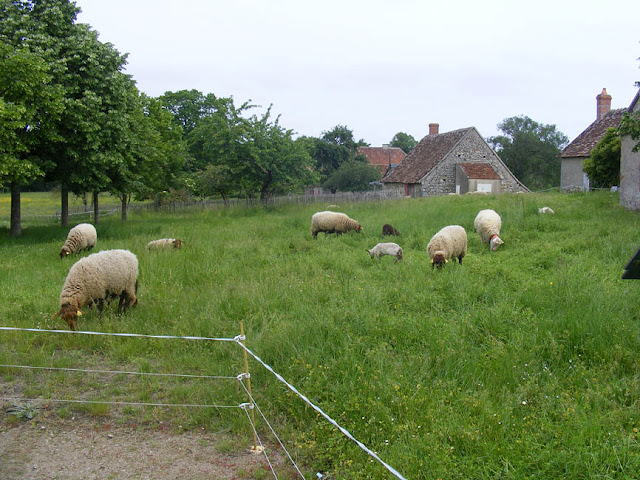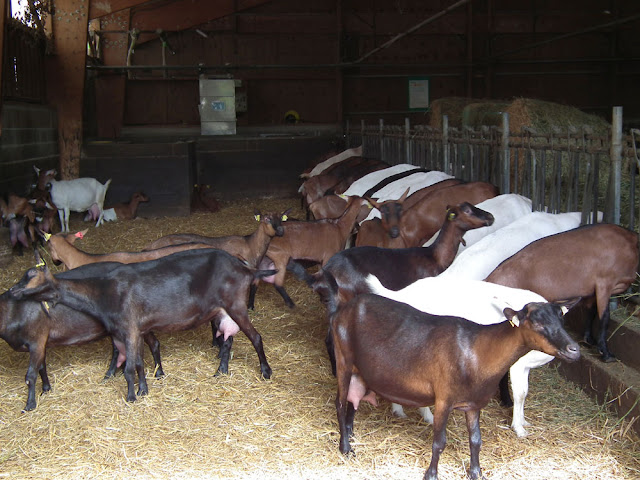 |
| Solognote sheep, increasingly used for conservation grazing in the Loire Valley and the Brenne. |
According to my friend Marie-Claude, sheep go 'bê' in French, and goats go 'mê'. At least, that's what you say when you are imitating the animals. The English equivalent would be to say sheep go 'baa' and goats go 'maa'. But if you make a sentence giving the sounds they make a name, both animals 'bêle' ie bleat.
 |
| Dairy goats in the Touraine Val de Loire. |
I'm afraid this level of conversation indicates how long we had been sitting around waiting for the rain to stop last Monday. We had started to get a bit silly.
UPDATE: French blog reader JMB has emailed me to point out that technically 'que le mouton bêle, mais que la chèvre chevrote'. Both bêle and chevrote would translate as bleat in English though. I'm surprised that CHM didn't get in first with this comment -- it's right up his street :-)

4 comments:
Two things.
Was there any serious research on/if animals talk to each other in some way and to other species? This reminds me when I was visiting my late brother in Périgeux in 1944 of an actual conversation I had with a lone goat grazing in the moat of the ruined château Barrière. That nice creature answered my mees as if they meant something to her! The exchange lasted a few minutes and it feels as if it was yesterday!
Second thing. Do people rent sheeps or goats to graze their land as they do with beehives to pollinate their fruit trees?
The big question is would the sheep and goats know the difference in French or English???
Silly is good!
C&E, I think members of flora and fauna are able to “talk” to each others in some way, that means interspecies and international despite the region they live in. In their way, dogs and dolphins understand humans. They’re more advanced than we are! I’m sure, one day, researchers will find how it works. In my humble opinion, every living thing is able to express itseIf in some way. I don’t know about rocks, but who knows?
Post a Comment